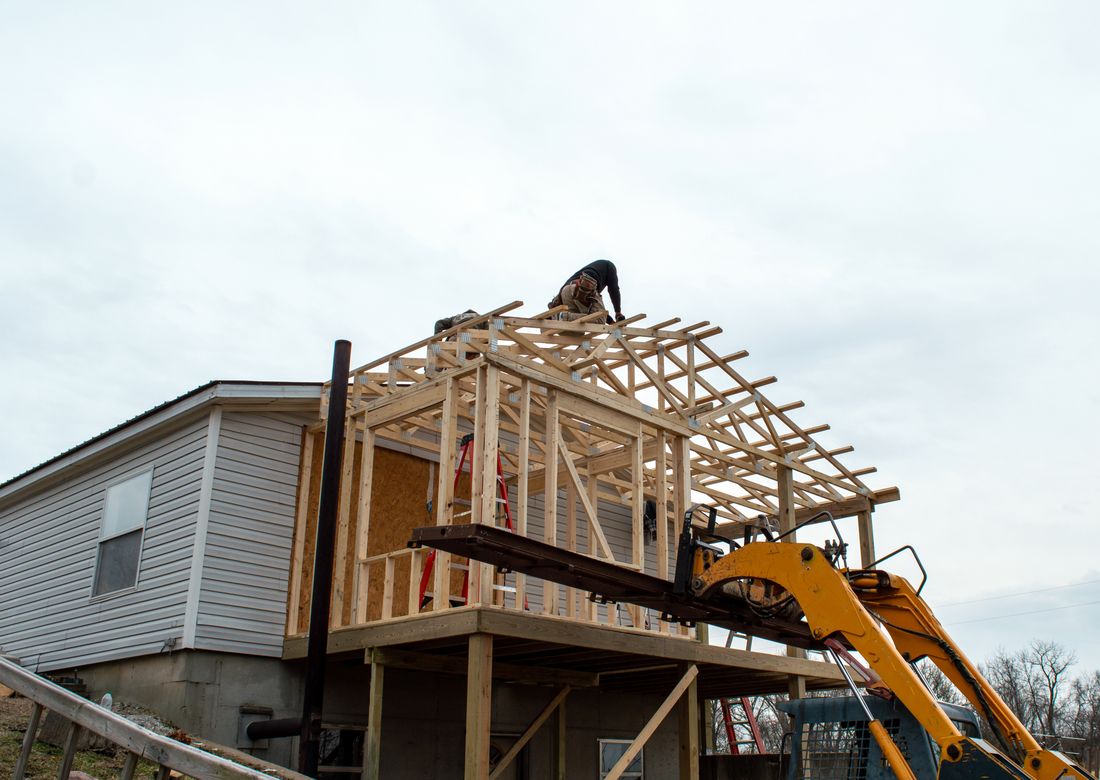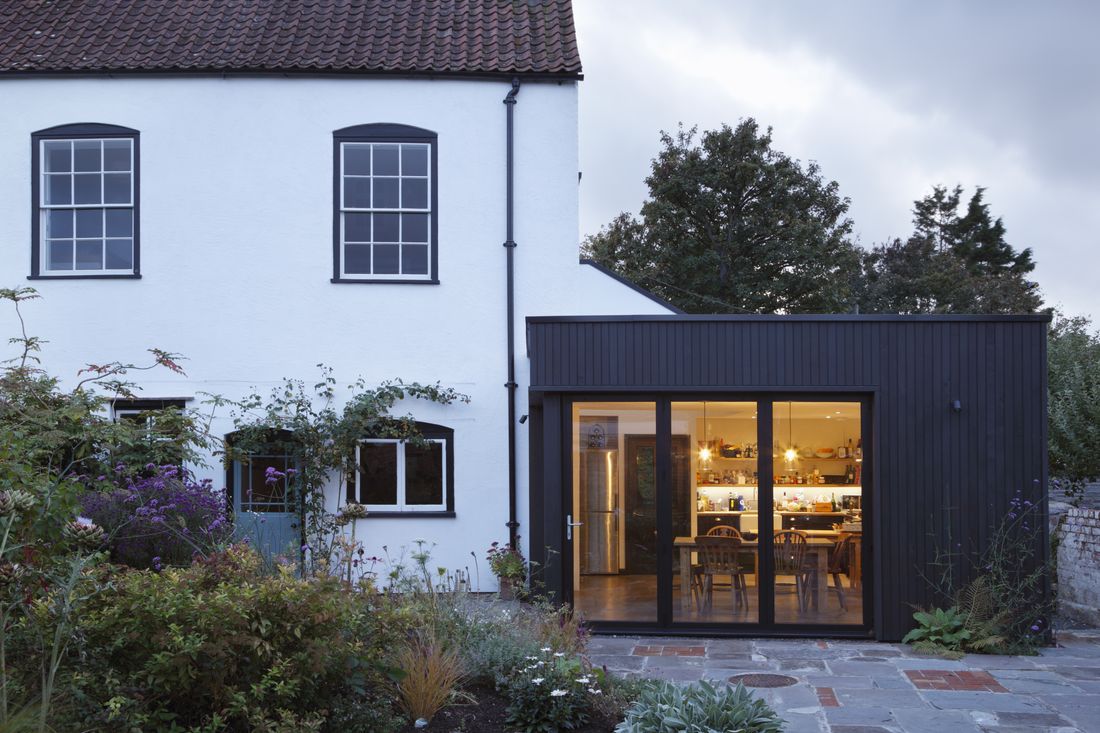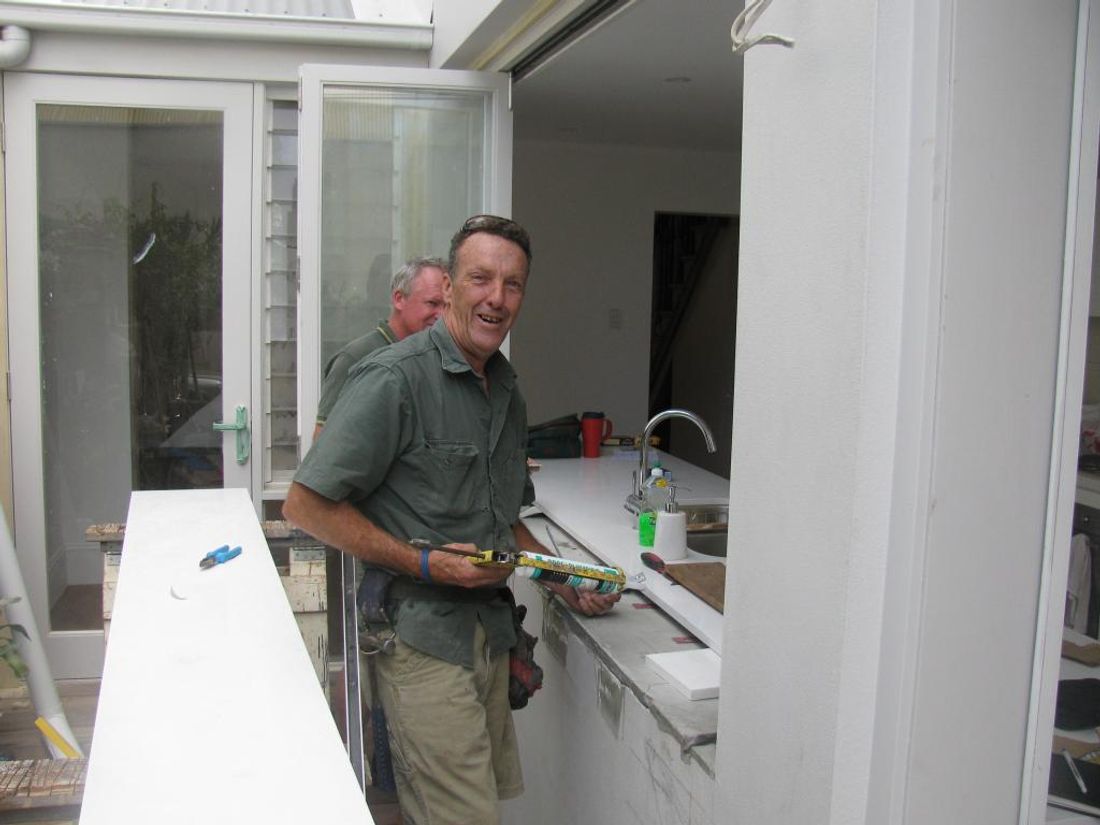Interior
Exterior
Outdoor
Build & Renovate
More
Interior
Exterior
Outdoor
Build & Renovate
More
How Much Do House Extensions Cost? [2024]
$2000/m2 to $4000/m2
These prices are based on national averages
Let us get you up to 3 quotes from a Home Extension Builder in
Last Updated Dec 6, 2023 · Written by hipages team · 10 min read
- The average cost of house extensions in Australia is approximately $2,000/m2 to $4,000/m2 for a ground floor extension.
- For an 80 square metre extension, you can expect to pay from $160,000 to $320,000.
- A second storey home extension costs about 50% more than a ground floor extension.
If your family's growing or you want more space for working or entertaining, you might be facing a dilemma – should you move to a larger home or add on a house extension?
Moving house can be expensive and time-consuming, while extending allows you to stay in your current location, and the cost of house extensions can be an investment that adds value to your home.
But how much does an extension cost? Read this guide to find out:
- What are the common reasons for building an extension?
- What is the house extension cost per m2 in Australia?
- What are the factors impacting the costs of home extensions?
- Do extension costs vary between different states?
- What are other costs that you need to budget for?
- What are the costs of different types of home extensions?
- How to save on the cost of house extensions
- Are extensions worth it for investment purposes?
- What permissions and approvals will you need for a home extension?
- How do you find the best builder for a home extension?
- Getting quotes from home extension builders
What are the common reasons for building an extension?
There are many reasons why you might want extra space in your home, from extra bedrooms for a growing family to a workshop, home office or entertainment areas.
Why consider a house extension when you could sell your house and move to a larger home? Here are four good reasons to consider adding house extensions:
1. If you like the area you're living in, you don't have to move
2. You can make the changes you want and don't have to settle for something that's just 'okay'
3. A home extension can be more affordable than moving to a larger property
4. You may be attached to your current home and not want to leave
Moving home involves many expenses and a great deal of effort. First, you have to put your home on the market and look for a suitable new home. If your house is smaller than you would like, a larger home is going to cost more.
Along with moving costs, bank charges and other expenses, the cost of house extensions can be considerably less than moving. Home renovations such as extensions and additions will also add value to your property if you’re planning to sell in the future.

What is the house extension cost per m2 in Australia?*
You won't know the exact cost of house extensions until you've had plans drawn up and know how large the extension is going to be and what will be included. As a rough guide, expect to pay around:
- $2,000 - $4,000 per m2 for a ground floor extension
- $3,000 - $3,500 per m2 for a second storey addition
An 80 square metre ground floor extension should cost between $160,000 and $320,000. A 60m2 extension could save between $20,000 and $75,000, depending on the quality of inclusions.
What are the factors impacting the costs of home extensions?*
The size of home extensions is one of the biggest factors that will affect their cost. Your project could also be more expensive if:
- You're adding a second storey. A second storey house extension costs around 50% more than a ground floor extension. This is because a second storey can require foundation work and other major expenses. However, in some cases, a large second storey addition can work out cheaper than a large ground floor extension, as less land will be needed.
- You need to have excavation work done, to knock out a wall or other minor renovations.
- You're adding a wet area, such as for a bathroom or kitchen renovation, which will require new plumbing.
- You want a more complex design or quality materials. Options such as prefabricated home extensions are cheaper, but you'll be limited in your choices, so might not get to realise your personal home extension ideas.
Do extension costs vary between different states?*
Where you live will also impact on house extension costs. Local rates for home renovations in Sydney average $40 per hour, increasing to $45 in Melbourne, Brisbane and Perth and $50 per hour in Adelaide and Canberra.
What are other costs that you need to budget for?
Home extension quotes normally account for aspects such as roofing, exterior and interior cladding, insulation, windows and doors, but there can be other expenses to consider too.
For your extension to be ready to use, you may also need to budget for:
- Flooring
- Lighting and electrical work
- Heating and air conditioning
- Plumbing
- Plans and council fees
- Interior and exterior painting
- Furnishing the extension when complete
What are the costs of different types of home extensions?*
Some types of extensions cost more than others. If a bathroom or kitchen is needed, the cost of plumbing, electrical work and bathroom or kitchen fitouts has to be factored into the cost.
Overall, expect to pay:
- $5,000 - $30,000 for a conservatory extension
- $7,500 - $20,000 for a garage extension
- $10,000 - $25,000 for a bathroom extension
- $10,000 - $35,000 for a kitchen extension

How to save on the cost of house extensions
The cost of house extensions involves more than just the cost of building, so to avoid going over budget, you need to consider all of the additional costs before you commit to an extension. Here are some more tips to keep your house extension costs under control:
- A smaller extension is cheaper than a larger one. The money you save by downsizing could pay for most if not all of the furnishings, curtains and other inclusions. Adding large windows or knocking out a wall for an open-plan layout could make a smaller space feel larger.
- If you're adding a bathroom, an ensuite bathroom will cost less than a large bathroom and can add value to your home and convenience for living.
- A cost-effective alternative to building home extensions is to convert a garage into a room. If you have a smaller property, a garage conversion also means you won't have to lose any outdoor space. However, you may not be able to convert a garage unless you also have a second garage or carport, depending on the rules where you live.
Are extensions worth it for investment purposes?*
One reason why many Aussies decide to extend their homes is that a new extension will add to the cost of a home if you decide to sell in the future, making it an investment that's likely to more than pay for itself over time.
A home extension could add between 5% and 20% to the value of a home, depending on the type and size of the extension. It's recommended to keep the cost of house extensions to no more than 5-10% of your home's current value.
A house extension isn't cheap, but moving to a larger house can be even more expensive. The house will cost more, and you'll have other expenses to think about. These will likely include:
- Real estate agent's commission
- Marketing the home
- Conveyancing
- Cleaning and/or styling your home
- Possible repairs or renovations
- Moving costs
These costs can be avoided, making a house extension usually less expensive than moving. It's also likely to be easier, since you won't have to leave the home while building is going on and can go about your daily business.
What permissions and approvals will you need for a home extension?
Before you make any structural changes to your home, you will need the relevant permissions and approvals from your local council. You may organise these yourself or your designer or extension builder may be able to arrange them for you.
Depending on where you live and what work is being done, these may include:
- Building permit
- Demolition permit
- Development application
- Town planning approval
Each of these carries a fee that will need to be included in your overall budgeting.

How do you find the best builder for a home extension?
When you're investing so much in your home, it's vital that you choose reliable and experienced professionals. Some questions to ask your extension builders are:
- Do you have the necessary qualifications and licences?
- Are you covered by insurance?
- Do you have references from similar jobs I can check?
- How long will the project take?
Getting quotes from home extension builders
When you apply for quotes from local builders, check the quotes you receive carefully. Do they include knocking out walls or excavation work? If not, these may be additional expenses.
Find a local Home Extension Builders now
Get QuotesIf in doubt, ask builders what's included in their quotes and what's left out. A quote should list everything. If it doesn't, a builder may be trying to get your business by undercutting other builders. They will add these other costs on later though, so make sure you know what's included from the start.
*Costs and prices in this article are indicative and should only be used as a guide. They also vary locally and are subject to market forces.
Frequently asked questions
How much does a home extension cost on average in Australia?
House extension costs depend on the size, materials used and other considerations. Average costs for 80 square metre ground floor house extensions are $160,000 to $320,000, with second storey extensions costing around 50% more.
What are the different types of home extensions?
A home extension is any room or useable space added to a home. This may be a living space, such as a bedroom, bathroom or kitchen, indoor-outdoor areas such as a conservatory, or a garage.
What is the cheapest type of home extension?
A garage conversion or other home extensions that require little to no structural work are cheaper than building new structures. Ground floor extensions are also cheaper than those on upper storeys.
Is it cheaper to extend house up or out?
Adding a second storey is usually more expensive than building a ground floor extension, as you may need to strengthen your home's foundations, but this depends on the size of the project. A larger ground floor extension can sometimes work out more expensive, as it takes up more land.
Do I need an architect for a home extension?
Before you can build a house extension, plans must be drawn up and approved. This is usually done by a professional drafter or building designer. Architects are a more expensive option that are normally used for larger-scale projects.